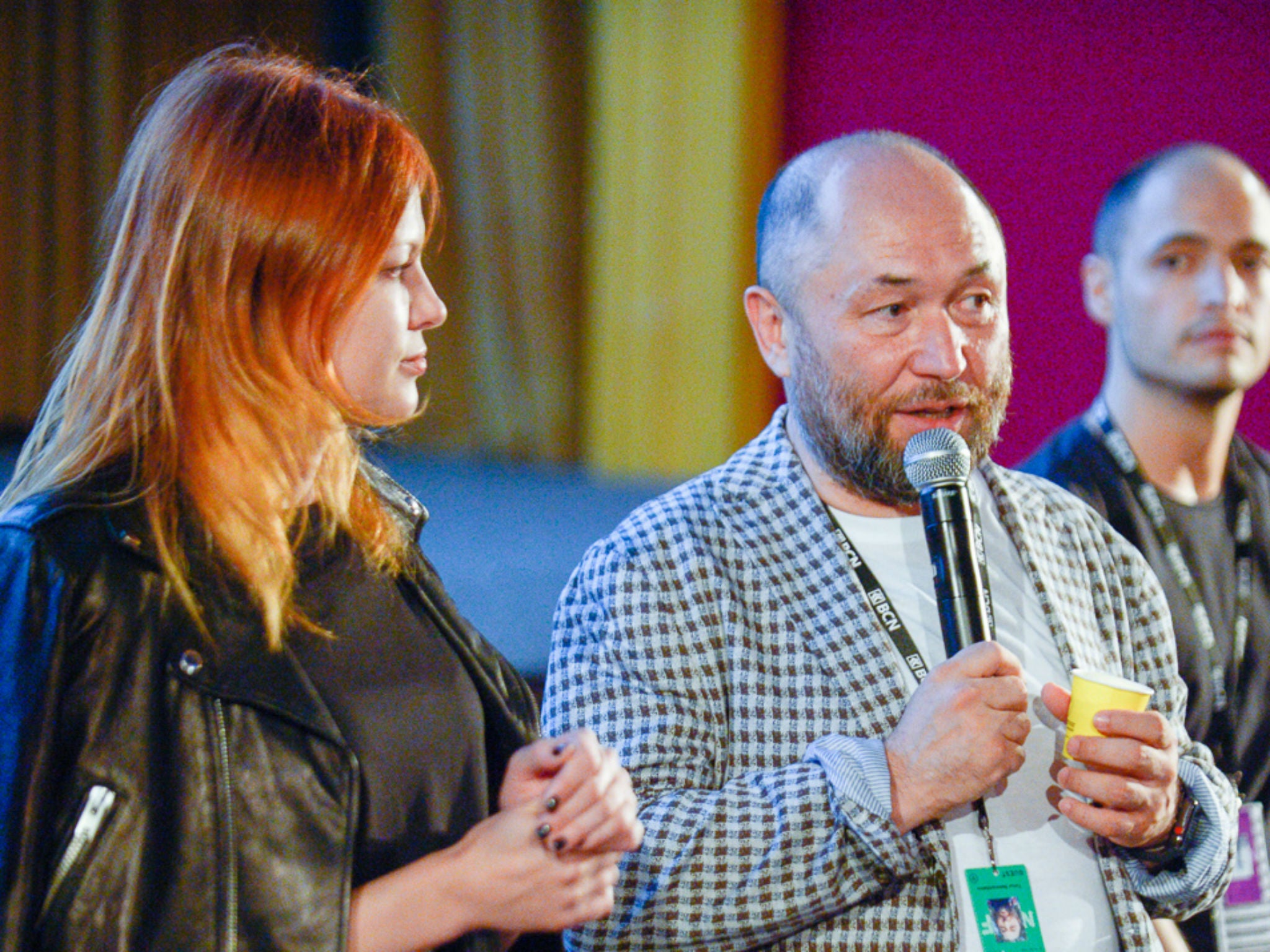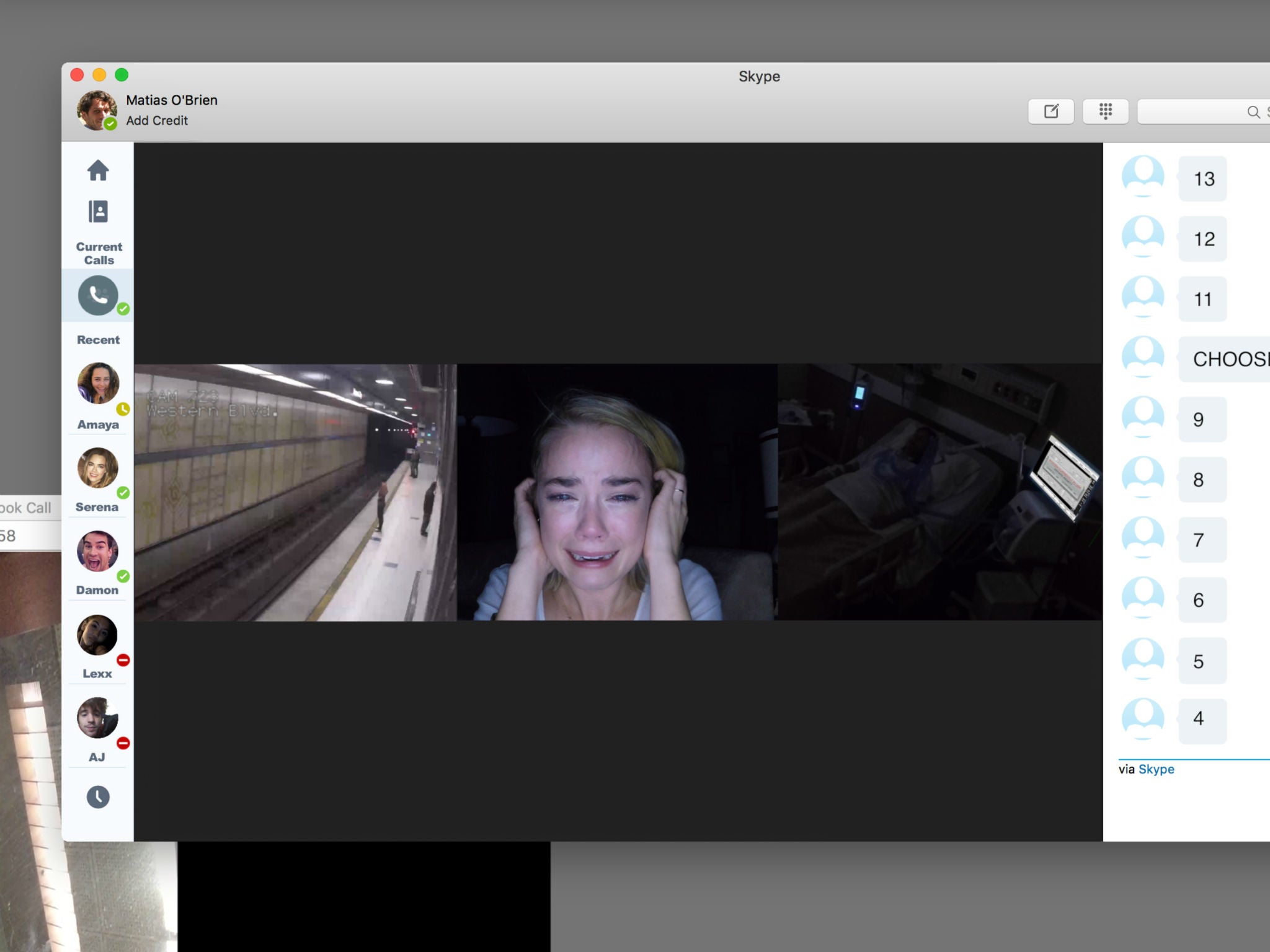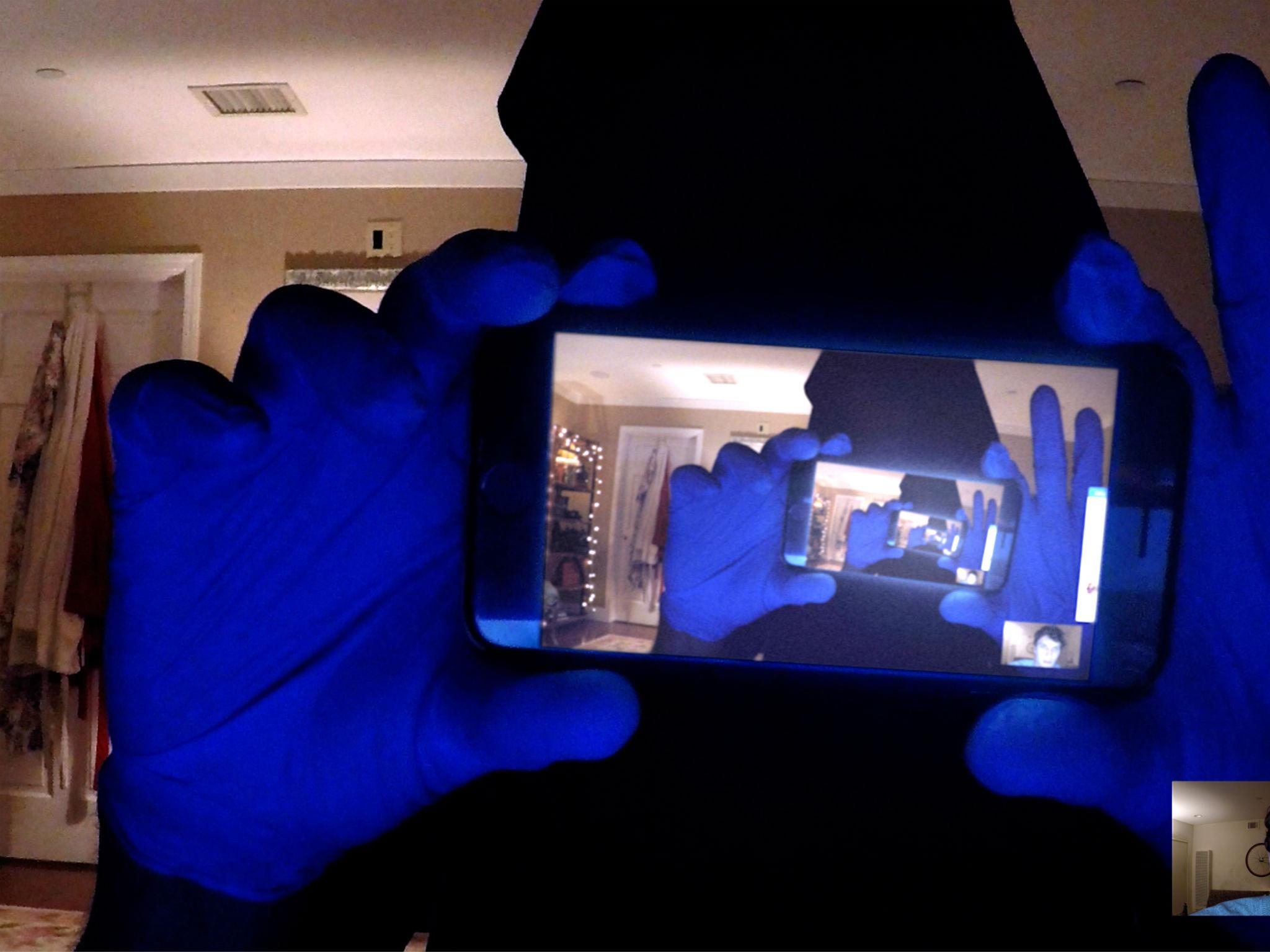Timur Bekmambetov interview: The filmmaker who shoots on laptops and mobiles instead of conventional cameras
The pioneer of 'Screenlife' films on 'putting the small screen on the big screen', the dark side of technology, and his latest production 'Unfriended: Dark Web'

Your support helps us to tell the story
From reproductive rights to climate change to Big Tech, The Independent is on the ground when the story is developing. Whether it's investigating the financials of Elon Musk's pro-Trump PAC or producing our latest documentary, 'The A Word', which shines a light on the American women fighting for reproductive rights, we know how important it is to parse out the facts from the messaging.
At such a critical moment in US history, we need reporters on the ground. Your donation allows us to keep sending journalists to speak to both sides of the story.
The Independent is trusted by Americans across the entire political spectrum. And unlike many other quality news outlets, we choose not to lock Americans out of our reporting and analysis with paywalls. We believe quality journalism should be available to everyone, paid for by those who can afford it.
Your support makes all the difference.Who needs movie cameras and traditional film crews anyway? Russian-Kazakh director/producer Timur Bekmambetov has made his share of traditional big budget epics. He worked with Angelina Jolie on his action thriller Wanted; staged a full scale chariot race in his remake of Ben-Hur, and moved into the Gothic realm with Abraham Lincoln: Vampire Hunter.
These days, though, Bekmambetov is thinking far more small-scale. He is the pioneer of what he calls “Screenlife” features. These are films in which the action takes place entirely on the screens of computers and smart phones. (The latest one, Unfriended: Dark Web, which he produced, is out in British cinemas this week.)
“Obviously, we live on screens,” Bekmambetov declares. The “most important and dramatic events” in people’s lives are as likely to happen on screens as to take place in the outside world.
Whether it's detectives trying to solve crimes or lonely hearts looking for dates or young adults on gaming nights or Isis terrorists trying to find brides, webcams, search engines and social media are likely to be the first resorts.
“I am lucky to talk to you in person but 80 per cent of my interviews are online today,” the burly, bearded 57-year-old filmmaker declares. He calculates that he spends eight hours a day in front of a computer screen himself.
Bekmambetov has come to the Neuchâtel Fantastic Film Festival in Switzerland to give a masterclass. “The world is different and the new reality needs a new language. It’s the same stories – but a different way of telling them,” he tells me of his new concept in filmmaking.

The Screenlife films made so far have very different subject matter. Liked was a romantic comedy distantly based on Cyrano De Bergerac. The Unfriended films are horror thrillers. Profile, slated to premiere in the UK at the London Film Festival in October and which Bekmambetov himself directed, has a political dimension. Its screenwriter Olga Kharina discovered the story from an article in a British newspaper about a French journalist, Anna Erelle, who created a fake Facebook profile in order to investigate Jihadi brides.
The Screenlife films also pose new challenges to crews. “For example, set design. On traditional moves, the set designer designs everything around you but on Screenlife movies, it’s mostly your screen: the designer should design the screen of the characters,” Bekmambetov explains. “There were no tools when we began this process. You don’t need cameras…you need recorders. To make these movies, you need to record the character and the screen simultaneously.”
The films may be made on computers but Bekmambetov intends them to be seen in cinemas. The aim is to “put the small screen on the big screen,” at least in the first instance. When the films do reach home entertainment platforms, Bekmambetov intends to make them an interactive experience, with extra clickable content.

Financiers may have been sceptical initially about the idea but they now find the economics appealing. Bekmambetov calculates that Unfriended made $65m on a budget of roughly $1m.
This is also a way into filmmaking for outsiders who wouldn’t otherwise have the opportunity to direct their own movies. Bekmambetov’s production company, Bazelevs, is staging contests which allow anyone to submit pitches. The winners will get their projects fully financed and produced.
Orson Welles famously described filmmaking as “the biggest electric-train set any boy ever had.” Put it to Bekmambetov that Screenlife means throwing away most of the toys that make filmmaking such an adventure and he doesn’t agree. He has been on huge sets on films like Wanted with hundreds of technicians and extras as well as big name stars. That was “fun” at the time but he is now looking for something else.
An added advantage to the Screenlife is that he can make them living between Russia, Kazakstan and the US. He cast Profile on Skype. “I decided it was the right way to do it. I don’t need to see actors in person because the audience will meet them on screen.” The location scouting was “virtual” too. “The production team was in London and I was somewhere else.”
For much of the shoot, the actress playing the undercover journalist was in London while the actor playing the Jihadi recruiter was in Cyprus. Even when they were in the same shooting location, they were in separate rooms. Editing was done over Skype.

One obvious irony is that both Profile and the Unfriended films portray new technology in a dark and threatening light. Bekmambetov may be proselytising on behalf of his groundbreaking, computer-based filmmaking style but his films deal with suicide, betrayal, torture, cyber-grooming and cyber-bullying. “You’re probably right,” he acknowledges when I put this to him. “In both movies, the internet world is scary because maybe we are just entering this world. We are like kids entering the forest…”
As the Screenlife concept evolves, Bekmambetov is plotting some mind-bending new projects. On one, which he is developing with giant Russian internet company Yandex (“the Russian Google”) he will share the directing credit with an artificial intelligence (AI) programme. The film is inspired by the legendary Soviet neuropsychologist Alexander Luria's non-fiction book The Man With A Shattered World: The History Of A Brain Wound, about a Russian soldier with brain damage. The AI programme will be put together in such a way that it misperceives the world.
“The soldier had a problem with his brain and we are programming the machine to make the same mistakes and to create illusions and hallucinations,” Bekmambetov explains. For example, if it is presented with an image of a radiator, the AI programme might think it is looking at an accordion. The intention, which seems very far-fetched, is to teach the AI programme to devise its own “poetical, metaphorical” language.
Bekmambetov grew up in the Soviet Union. “I cannot change it. I am still the person from that world. It’s a bit of a tragedy what has happened with the Soviet Union. Families were mixed. The husband was Georgian, the wife was Ukrainian. Then, when the country fell apart, it was a tragedy… it was one empire, one nation for many years.”
Kazakhstan, where he grew up, was a multicultural “melting pot”, with Kazakhs living alongside Russians, Tatars, Ukrainians, Greeks, Koreans and assorted other races. Everyone mixed along together. In an online era, such breaking down of national barriers may again be possible.
Ironically, at the same time as directing or producing the Screenlife films, Bekmambetov has also been busy developing and producing a more traditional feature, The Current War, starring Benedict Cumberbatch as Thomas Edison. The original coproducer was a certain Harvey Weinstein. Thanks to the scandal surrounding Weinstein and the bankruptcy of the Weinstein Company, The Current War is now in limbo. It showed in an unfinished version at the Toronto Film Festival last year. “We are waiting for the next distributor who will allow us to finish the movie.”
Tongue in cheek, Bekmambetov calls himself part of a “Delta Force,” an avant garde commando group pioneering a new way of filmmaking. The scepticism he initially encountered is gradually fading. “Nobody believed in it. Two years ago, big name actors and filmmakers shunned the Screenlife concept. Now, Bekmambetov claims, that is changing. Jason Blum (producer of Get Out and BlacKkKlansman) has partnered on some of the projects and they have secured distribution deals with the US majors.
“We plan to produce 14 projects in the next 18 months,” the filmmaker declares, beginning to sound more like a salesman than an artist or producer. Every three months, he aims to green light three new movies. He has his own distribution and visual effects companies as well as production company. He produces movies everywhere from the US to China. Even so, he wants to make it clear that Screenlife is a concept that can be embraced by anyone, just as long as they have a laptop and an internet connection.
'Unfriended: Dark Web' is out now
Join our commenting forum
Join thought-provoking conversations, follow other Independent readers and see their replies
Comments